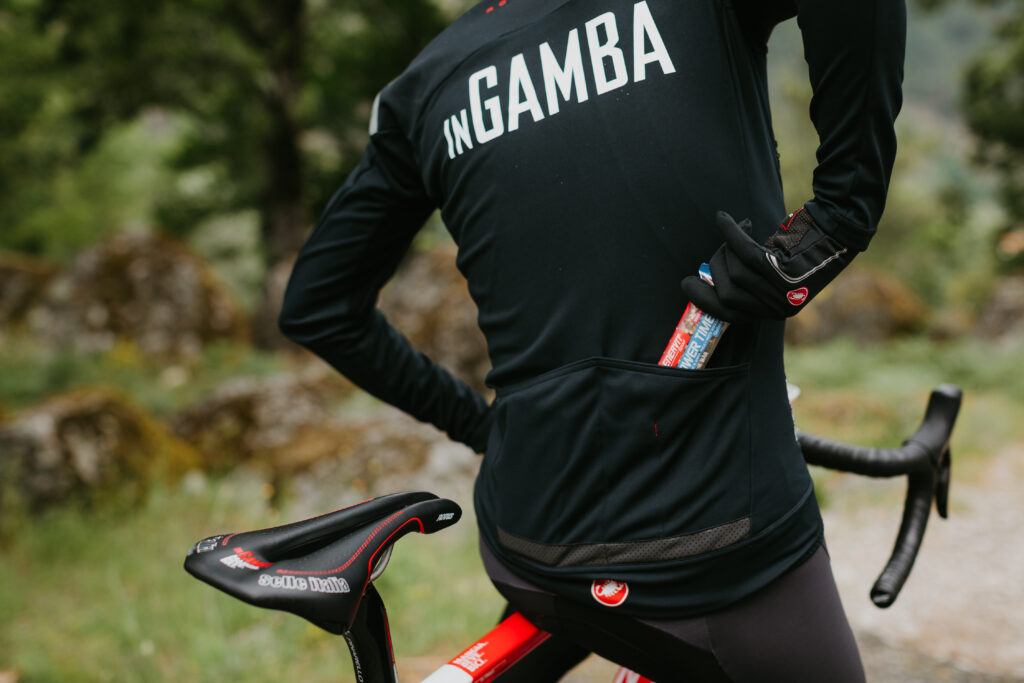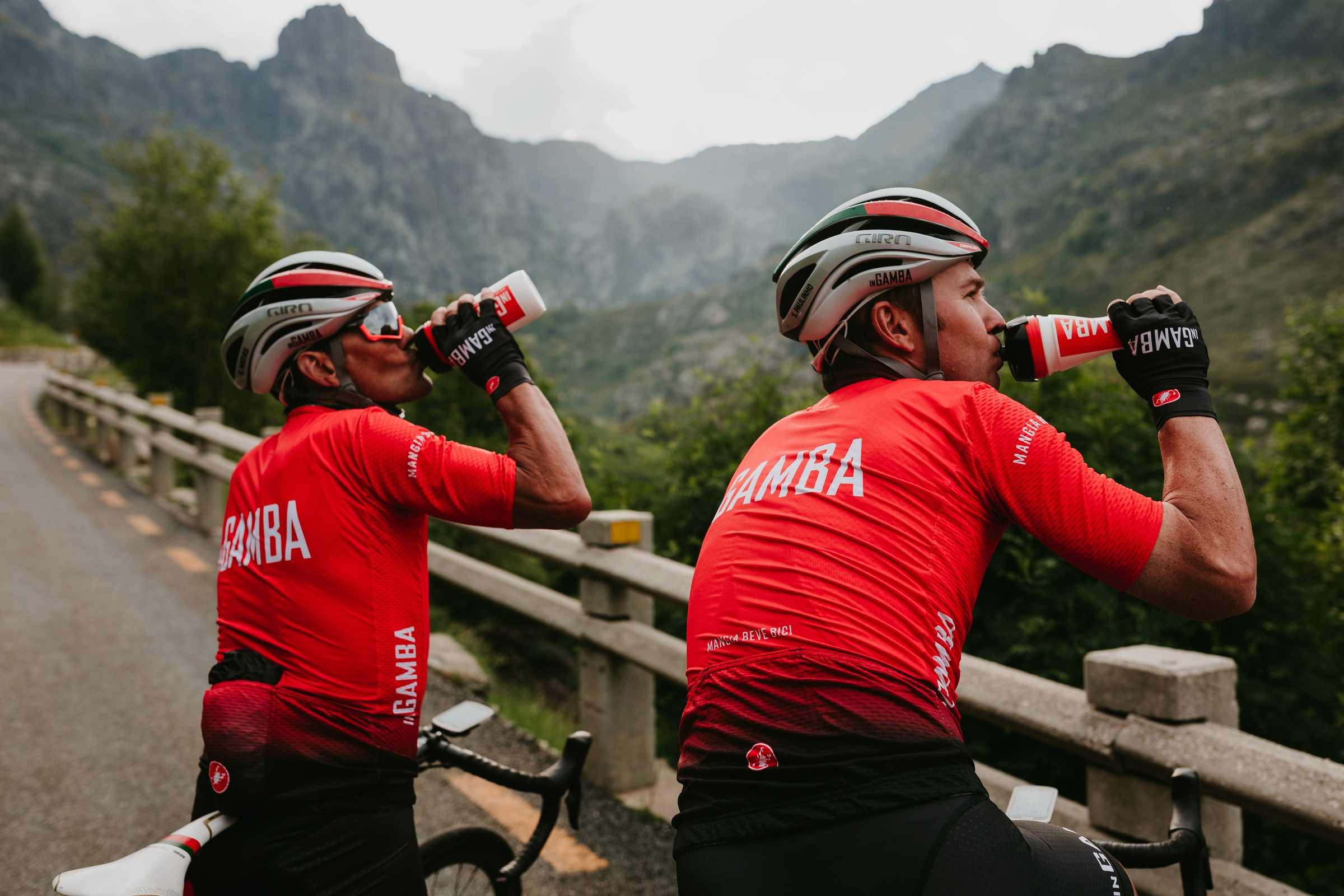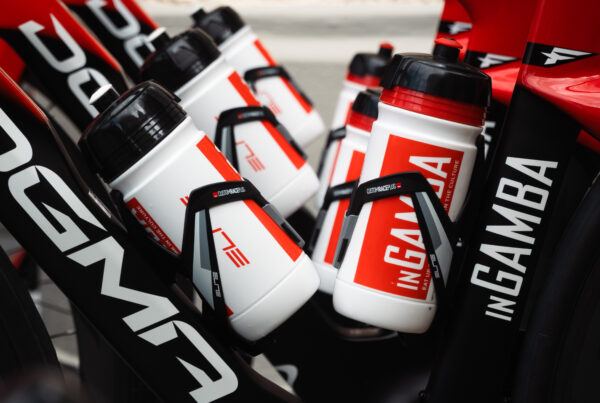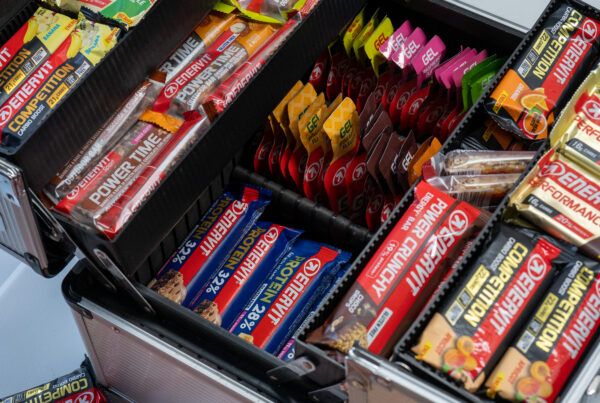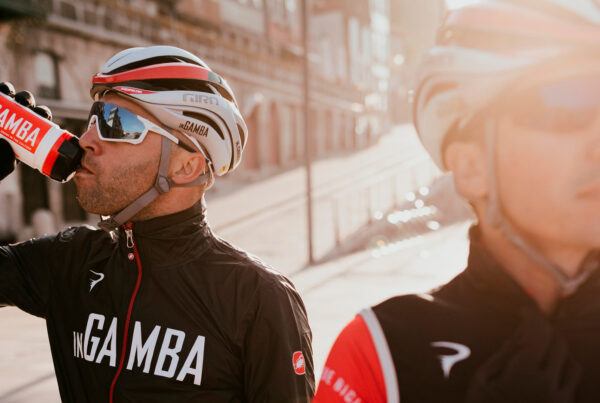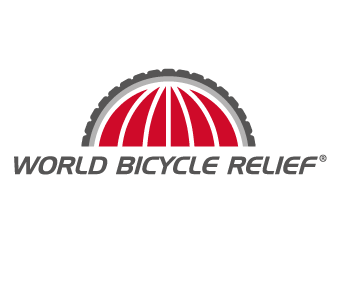Staying fueled and hydrated is a vital part of cycling. If you’ve been riding long enough, you’ve no doubt had a bonk or two and it’s not an experience you’d wish on anyone. We’ve all been there: Miles from home, sapped of energy, and the last thing you want to do is keep pedaling, even though you know that there’s no other option.
At the most basic level, some water and a banana will do the trick, but if you really want to ride to your full potential, supplements are essential to boost your fitness level and maximise your performance. So it’s incredibly important to create a strategy that you know works for you and that you can rely on at every stage of the ride, particularly if you’re planning on a big one, or better yet, a multi-day adventure with inGamba.
Every rider is different and there’s no “one size fits all” solution, so it’s worth trying different products until you find what works for you. There are some fundamentals that every athlete needs to take into account though, so we reached out to a friend for some expert advice.
Elena Casiraghi works for Equipe Enervit, a team of doctors, researchers, and athletes that aims to apply scientific knowledge in the development of products that can meet the needs of athletes and all those who lead an active life. Equipe Enervit is also committed to sharing the most modern dietary strategies and promoting well-being and health through nutrition.
Drink often, before you get thirsty
When hydration is reduced, muscle fatigue increases, glycogen levels are depleted more quickly, and the risk of muscle injury also increases. Which is not really what you want during a race or when you’re training. To reduce these risks, the important thing is to start off hydrated – and to stay as hydrated as possible during the ride.
You shouldn’t drink a lot in one go, though. Fluid absorption is reduced and it may increase the risk of gastrointestinal stress. The trick is to pre-empt your thirst. Hydration needs its own strategy too: take a sip every 15-20 minutes, consistently.
Suggested products: Enervit Isotonic Drink, Enervit Salt Caps, Enervit Effervescent Salts
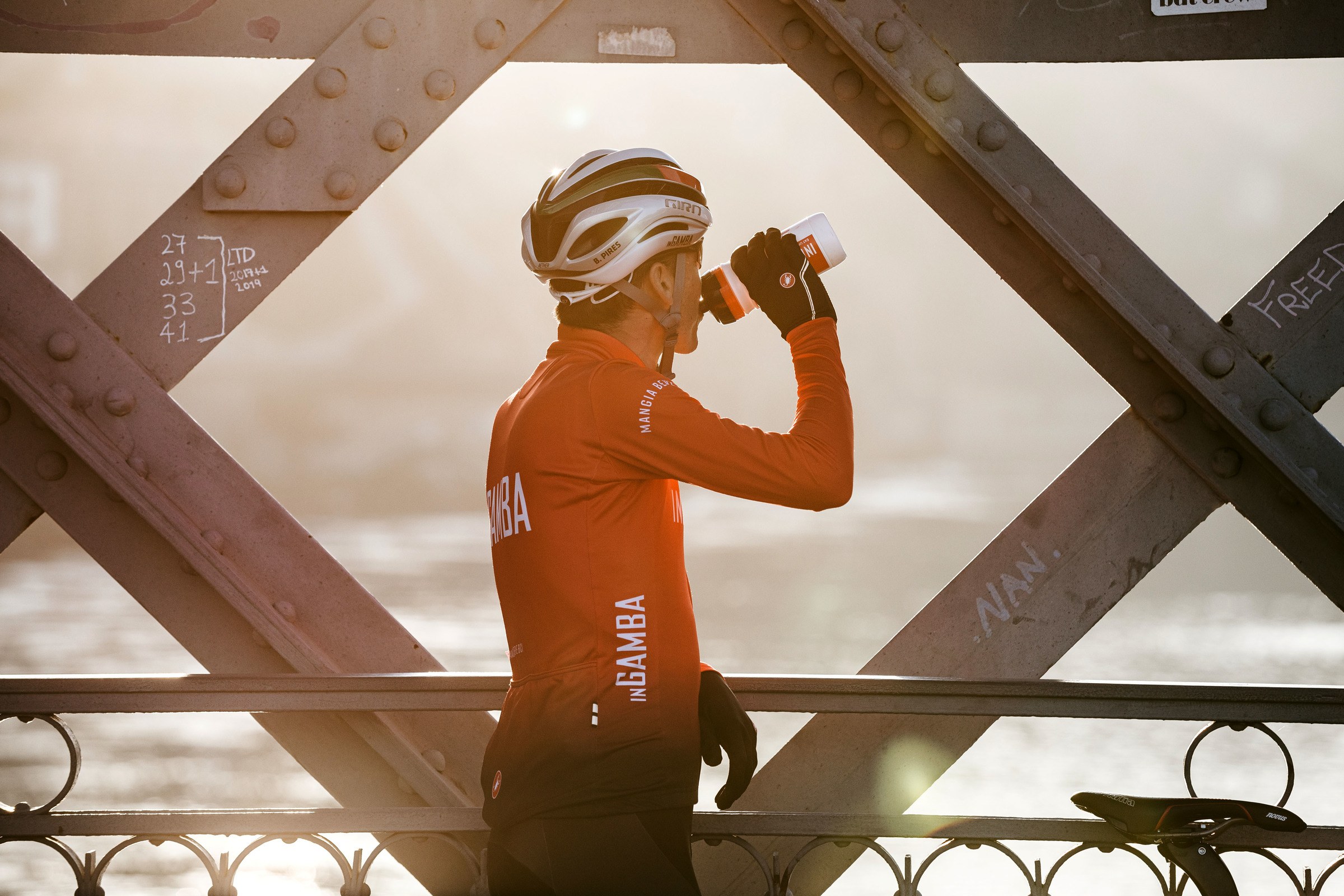
Watch out for hunger pangs, eat often
Our energy reserves are almost unlimited as far as the fat stored in our body is concerned. But this fat can only be turned into energy in the presence of sugar. So, we mustn’t deplete our body’s reserves of sugar, which, unlike fat reserves, are limited.
Once they’re depleted, hunger sets in, and at that point not even fat will be burned anymore. Performance is reduced and muscle fatigue increases exponentially. This is why it’s essential to consume carbohydrates from bars or gels constantly during training sessions and races. Setting off with a planned energy strategy can really make a difference.
Suggested products: all energy products
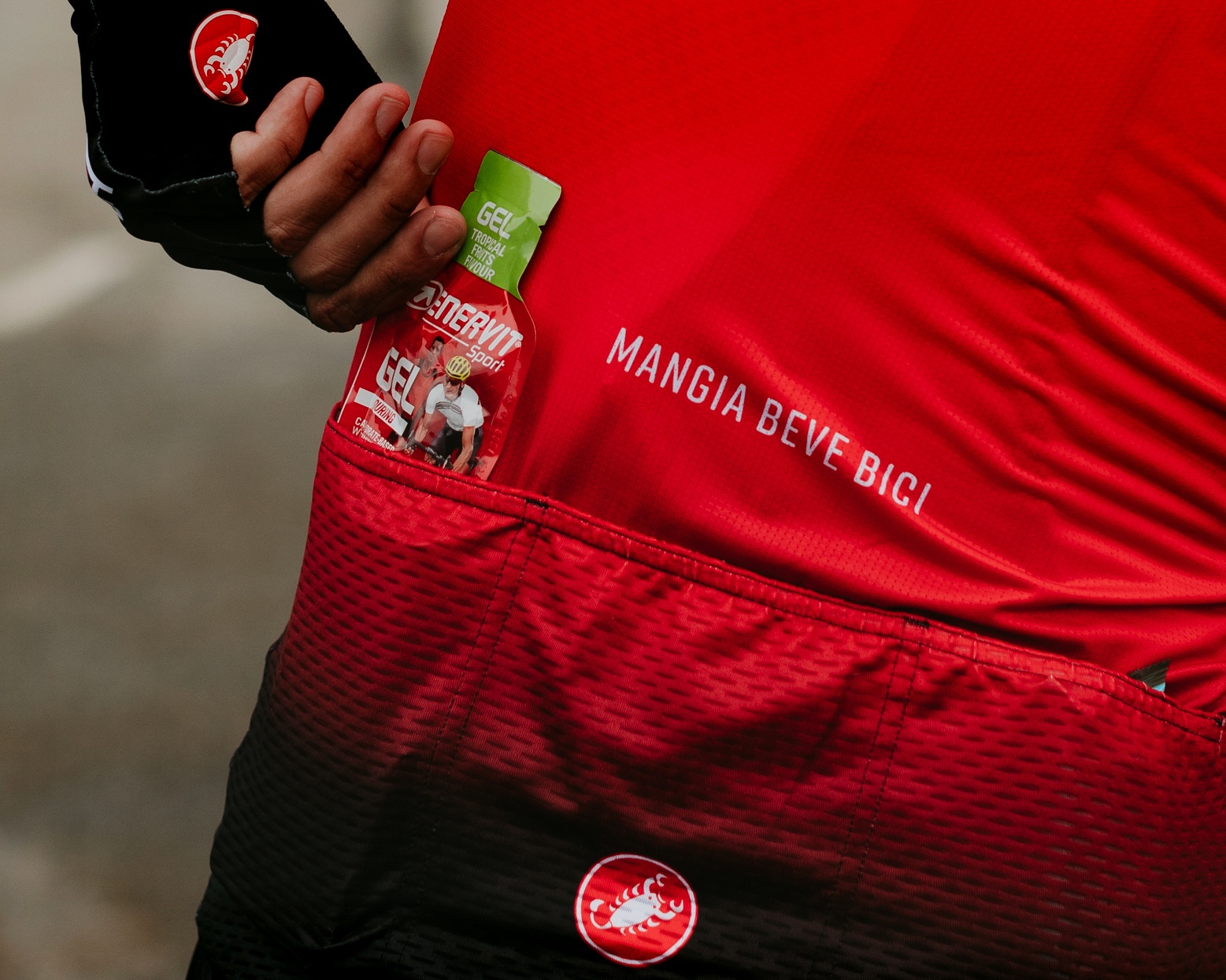
Caffeine: Extremely useful for endurance, but don’t go overboard
Caffeine provides many benefits in sports performance. It increases concentration, it helps you put up with fatigue and it makes energy available faster. This is why small amounts of caffeine are added to carbohydrate-based sports supplements.
When you want more, in a race for example, the best idea is to take Enervit Sport Gel or Liquid Gel with caffeine during the most demanding stretches of the race or to use these energy supplements for the final leg. All you need is a few grams of caffeine to benefit. During the race, it’s a good idea to adopt a nutrition strategy where products with caffeine alternate with caffeine-free items, or, as suggested above, use the products with caffeine in the final leg of the race. This will stop you from consuming too much caffeine, which can cause intestinal stress when taken in large doses.
Suggested products: Enervit Sport Gels with caffeine, Enervit Liquid Gels with caffeine

A bowl of pasta at 4 in the morning?
The myth of taking a bowl of pasta at 4 a.m. before a gran fondo is one that just won’t go away. Amateurs try to copy the pros, who eat dishes like rice or pasta at breakfast during stage races. But there are two big differences between the pros and the rest of us.
The first is that a big ride, or even a gran fondo, is not a stage race. In a stage race, the time window between one stage and the next is a precious moment for recouping energy levels, and therefore the glycogen used in the previous stage. So, breakfast gives professionals athletes the chance to recover after their previous exertion.
The second is that nutrition needs to be trained too. Unlike amateur athletes, professionals are used to eating these dishes. The risk for an amateur athlete is that this strategy may become a real disadvantage, weighing down their body and “wrapping” their legs. So, it’s not really what you need before a race.
The best thing before a ride is carbohydrates, which are pleasant to eat and provide a large amount of energy in small quantities. We recommend Enervit Carbo Flow and Enervit Pre Sport. A full dose of each of these can provide the energy equivalent of a bowl of almost 80 g of pasta, but they are easier to digest and nicer to eat, as well as being handy to carry with you.
Suggested products: Enervit Carbo Flow, Enervit Pre Sport
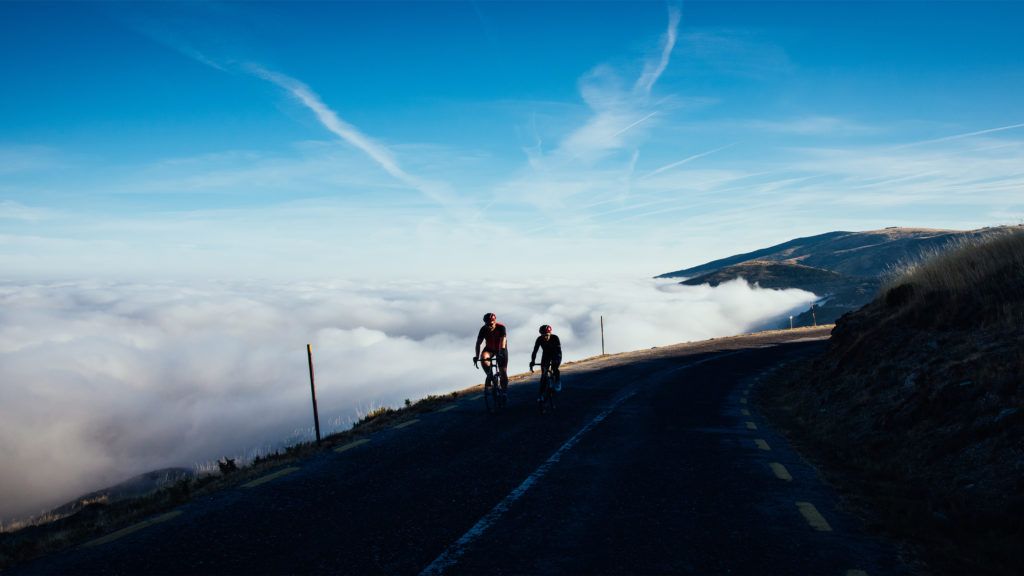
A banana in the back pocket?
Lots of cyclists like to take a banana with them on their rides. It’s a fruit that’s packed with carbohydrates and it’s even been “packaged” by nature, so it’s easily transportable. The problem is that it’s low in minerals, and contrary to popular belief, isn’t concentrated with potassium, either.
It’s a good source of energy if the ride is a slow-paced one with slopes that are not too demanding, but when the intensity of training increases, a supplement with carbohydrates that are easily digested is preferable, such as energy bars (a Performance Bar or Competition Bar) or a gel or liquid gel, as well as water-soluble Maltodextrin powders.
Don’t leave anything to chance. Dietary supplements that have been specifically designed by sports nutrition specialists are preferable if you want to boost performance and keep gastrointestinal problems to a minimum.
–
Elena Casiraghi has a PhD in exercise, nutrition and wellness. She is an adjunct professor at the University of Pavia, and as an athlete she has competed internationally in rowing and triathlon.
